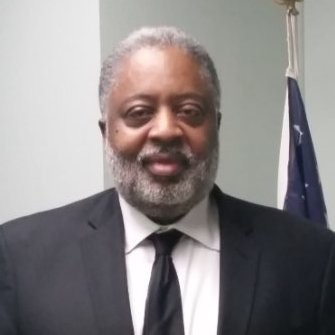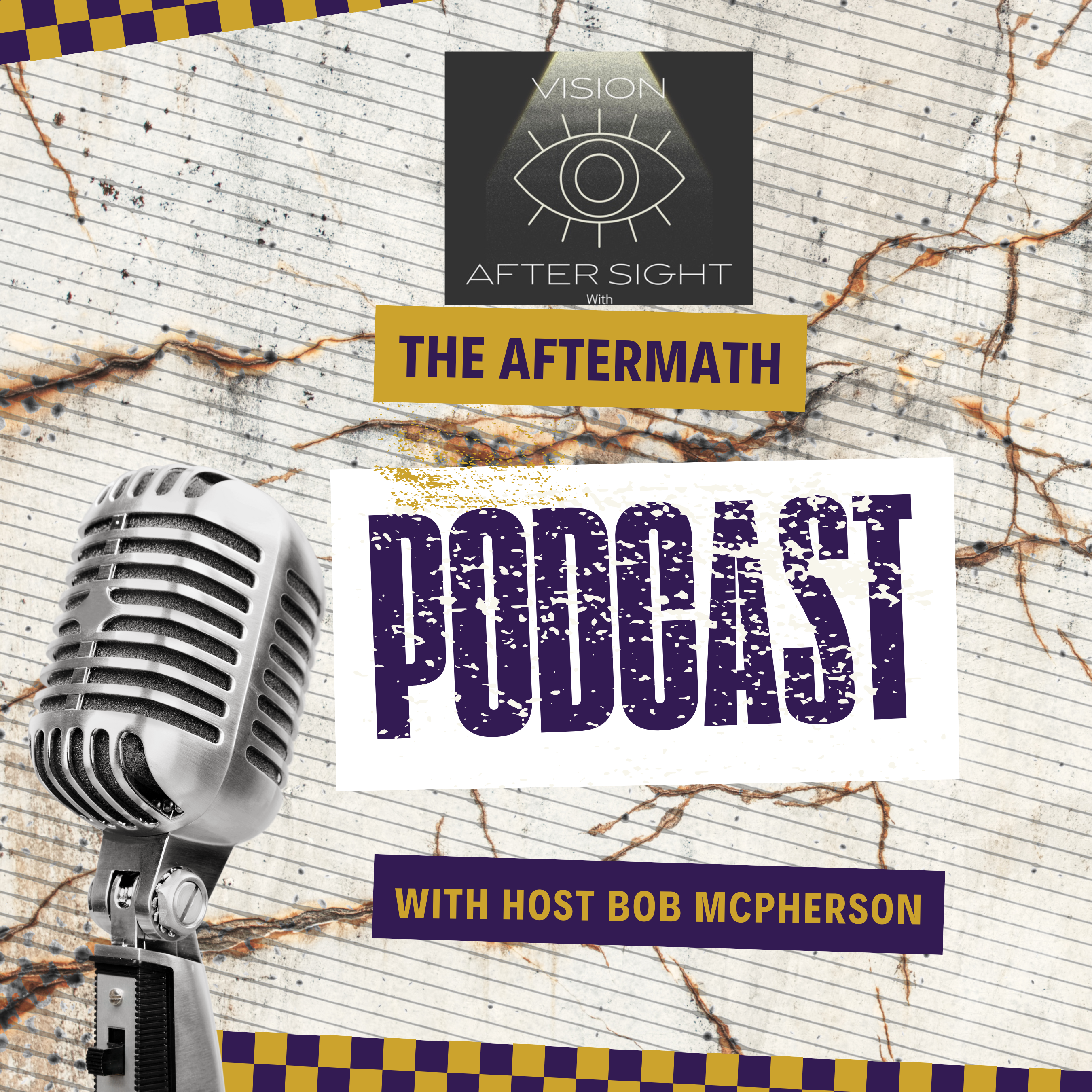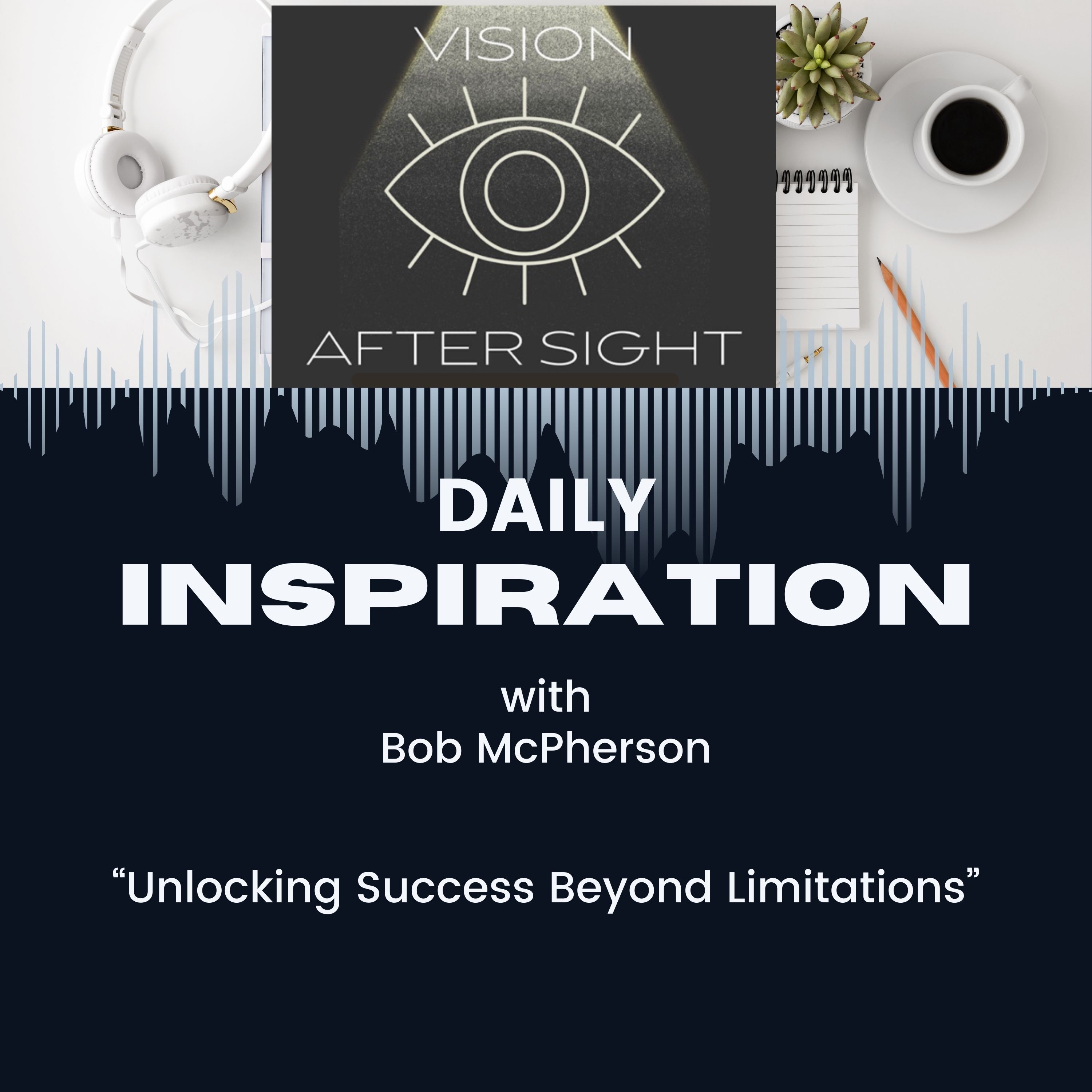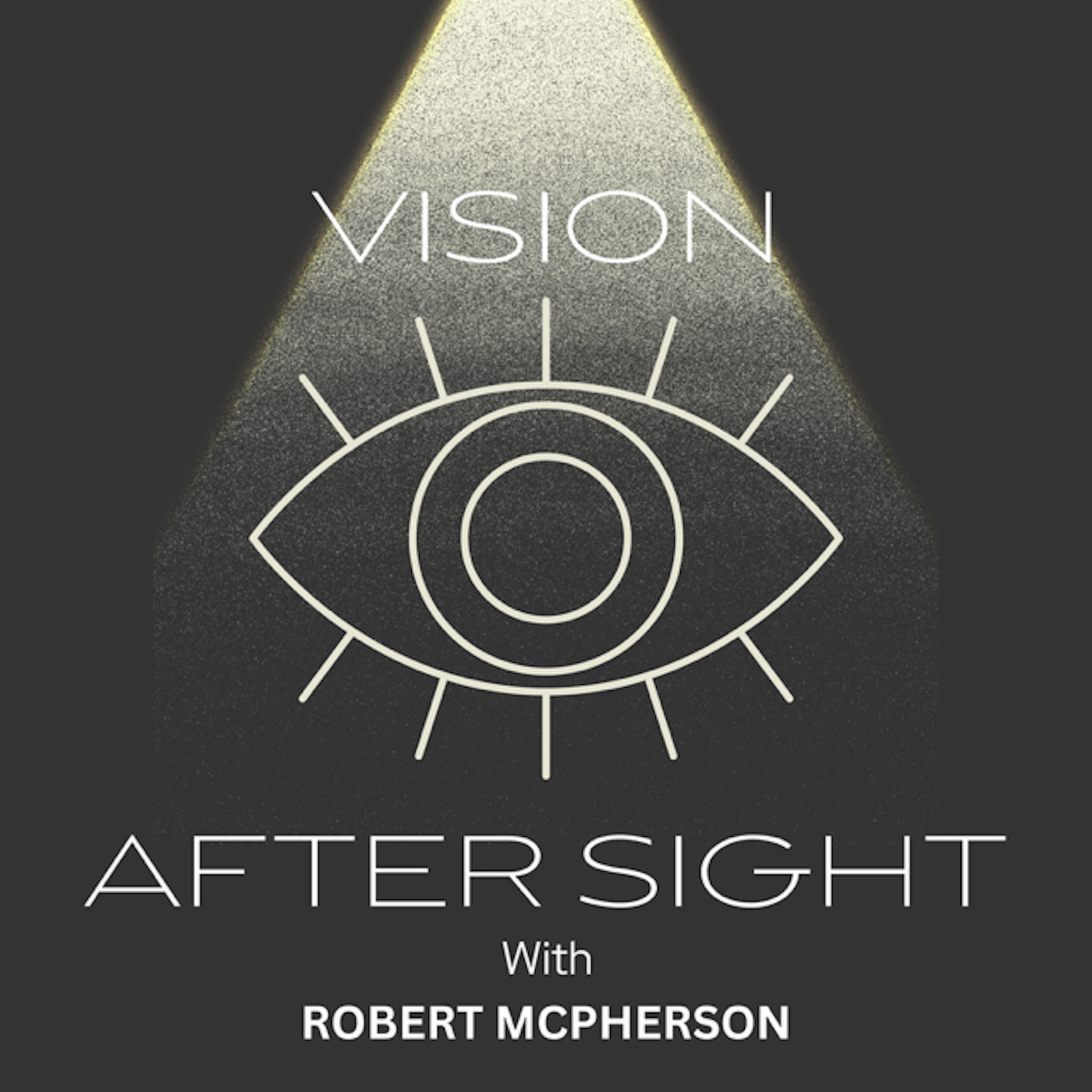Episode Transcript
[00:00:00] Speaker A: On this episode of Vision after the Aftermath, host Bob McPherson takes listeners to one of the city's most famous restaurants, where he sits down with the incredible Faye Johnson. Faye, a remarkable individual who has navigated life after losing her sight, shares her powerful perspective. And she quotes. I was a person before I was blind, and I am still a person. Through this heartfelt interview, Bob and Faye explore the strength it takes to embrace life beyond sight, reminding us all of the enduring value of self identity and inner strength.
[00:00:33] Speaker B: What's your name?
[00:00:34] Speaker C: Faye Chenault Johnson.
[00:00:37] Speaker B: What's your eyesight status?
Are you sighted, are you partially sighted or are you blind?
[00:00:44] Speaker C: Yes, I'm blind, but I do have minimum sight in one eye. Okay. Also have a prosthetic eye.
[00:00:52] Speaker B: What's your disease that caused you this?
[00:00:55] Speaker C: I have uveitis. And it started when I was in my 20s.
[00:01:00] Speaker B: Well, we ain't gonna ask you how old you are today, but. So let's start in your 20s.
If there was a something that you could inform your 6 month old after your eyesight, what would you tell?
What kind of advice would you have for yourself?
[00:01:27] Speaker C: My advice would be my life still goes.
I was a person before I lost my sight and I'm definitely a person afterwards. So I'm quite active in community things.
So I would say keep it moving.
[00:01:45] Speaker B: Okay. Wonderful. Now, what did you do before you lost your job?
[00:01:50] Speaker C: I was a registered nurse. And my last job I was a case manager, which I truly love. So I worked with insurance companies and with.
[00:02:04] Speaker B: So are you retired now?
[00:02:06] Speaker C: Oh, yes.
[00:02:07] Speaker B: So what do you do now?
Well, to just stay active.
[00:02:12] Speaker C: Oh, my goodness. I do too much.
I am active in my aarp. I'm active in my community. We have a community meeting for District 7. We meet once a month. I do that.
And I'm involved with Inter Vision.
[00:02:38] Speaker B: That's a support group.
[00:02:40] Speaker C: Support group? Yes, a support group. And I was involved with another support group, but I find that I can't do it all, so I had to drop them.
[00:02:51] Speaker B: So you're now only with Intervision.
[00:02:54] Speaker C: And I'm in the Detroit chapter of the Federation of the Glide. And I'm involved with the senior division. And I'm going to Washington, D.C. legislation. Right. Okay.
[00:03:09] Speaker B: Now, if there was a model that you live your life by, what would that be?
[00:03:18] Speaker C: My motto would be I am somebody.
[00:03:23] Speaker B: Did you ever receive any kind of vocational rehab or therapy or anything like that?
[00:03:28] Speaker C: Yes. I went to Kalamazoo for the School for the Blind for nine months.
[00:03:35] Speaker B: Wow.
[00:03:36] Speaker C: Only because my counselor just dumped me there. Never came to the Intake interview didn't come to the discharge. So after nine months, they figured, well, I guess you can go home. Which I did. But when I got home, my house had burnt up.
That was an issue. I had to pay for the computer adaptive stuff.
[00:04:06] Speaker B: And that should have been part of your, you would have thought, commission for the blinds.
[00:04:11] Speaker C: Right, right, right. But they didn't. And that was over eleven hundred dollars.
So. But when I got home, I didn't have a home.
So I started using my iPad.
And that is a lot easier than trying to work with Jaws, Right?
[00:04:32] Speaker B: Yeah. Because the Siri is built into. Right, the iPad. And your Apple phone. Do you have an Apple phone?
[00:04:40] Speaker C: Oh, yes. O.
Because they wouldn't train you. I bought it when I went to Kalamazoo because they wouldn't train you on.
[00:04:49] Speaker B: My little flip phone, the Android. Well, flip phones are different. But were they offering training?
[00:04:55] Speaker C: No, not with Androids.
[00:04:57] Speaker B: No, no, just Apple.
[00:04:58] Speaker C: Just Apple products.
[00:05:00] Speaker B: So which of those organizations that you belong to would you refer a newly blind person to?
[00:05:11] Speaker C: Actually, I think a newly blind should go to Greater Detroit Area on Aging for the Blind. And the reason why is because they have technology training and it's free and they do a lot of stuff. I'm going to be going with the mobility specialist next week. We're gonna go to Walmart.
So we'll walk around and, you know, do that.
[00:05:45] Speaker B: So that's where you recommended.
Who would you recommend they see over there?
[00:05:52] Speaker C: Now that I'm not sure.
[00:05:54] Speaker B: Okay, well, I know all those people over there. That's just.
[00:05:57] Speaker C: I did a commercial for them when I first lost my sight when I couldn't drive anymore, but they don't have a record of it, but it was fun.
[00:06:08] Speaker B: Now, what kind of hobbies? Do you have Any.
[00:06:11] Speaker C: Oh, reading. I read. I'm a prolific reader. I read at least a. A day.
[00:06:20] Speaker B: That's like me. I read between three and five books a week.
[00:06:23] Speaker C: Yeah.
[00:06:24] Speaker B: So do you. Do you get your books. These are audiobooks, Right?
[00:06:27] Speaker C: Right, exactly.
[00:06:28] Speaker B: Do you get yours from Bard Mobile exclusively or do you have some private accounts too?
[00:06:35] Speaker C: I use Bard exclusively.
[00:06:38] Speaker B: Well, my family gave me Audible, which is Amazon. Yeah, I had that, but I know.
[00:06:45] Speaker C: And they keep telling me I got 11 credits.
[00:06:48] Speaker B: Right.
[00:06:48] Speaker C: But when I can get them from Bart, and actually, I don't have to even call Bart.
[00:06:56] Speaker B: I can just download it.
[00:06:58] Speaker C: Right. I love that. And it's portable. You take it wherever you go.
[00:07:03] Speaker B: And it's free.
[00:07:04] Speaker C: And it's free.
[00:07:05] Speaker B: Okay.
[00:07:06] Speaker C: And I think that's one of the big things, because I Paid for everything, my CCTVs, which a newly blind person has no idea how to get that stuff because unless you have Medicaid, which I don't, so I'm on my own.
[00:07:29] Speaker B: But, you know, one of the reasons for the podcast is to educate people what's available for them free or at a minimal charge.
In wrapping this up, is there anything you'd like to say?
[00:07:47] Speaker C: Well, I don't know how many people know that there's a CCTV that will actually read to you.
And it's very nice.
[00:07:59] Speaker B: And CC is closed circuit.
[00:08:01] Speaker C: Right, Right. It's big. Big as a. It's actually bigger than my televisions, which I don't watch television, but I like the idea that I can stop it and actually read it if I can get it magnified enough. But if I can't, then I let the CCTV read it too.
[00:08:24] Speaker B: Okay. Yeah, I find that audio describe program is really appropriate for me because I am blind, you know, and so. And I really appreciate that. Well, that's it for this interview. Now, do you have any. Do you use any social media?
[00:08:48] Speaker C: No.
[00:08:49] Speaker B: Do you listen to any podcasts?
[00:08:51] Speaker C: I have listened to a couple podcasts, yes.
[00:08:54] Speaker B: Okay. Do you have Alexa or any of those kind of devices?
Do you have any other smart speaker like the Google smart speakers?
[00:09:07] Speaker C: No.
[00:09:07] Speaker B: Okay. Do you listen to podcasts on your Apple account?
[00:09:12] Speaker C: Yes.
[00:09:13] Speaker B: Because this podcast will be available on all of those. And as you know, a launch, we'll send you a text message or an email telling you that your episode is up and you can then tell Alexa to play the Aftermath podcast with your name and bam, you up and running, and then you can share that with all the people that are in your sphere of income.
[00:09:43] Speaker C: Okay, Sounds good. Good.
[00:09:45] Speaker B: Okay.
[00:09:45] Speaker C: Yeah.
[00:09:46] Speaker B: Well, thank you, FAI Johnson.
[00:09:49] Speaker C: Well, thank you for the interview.
[00:09:51] Speaker A: All right, thank you for listening to Vision After Sight the Aftermath with your host, Bob McPherson. Vision After Sight is using the Aftermath podcast to introduce blind people to other blind people and their allies so that we might grow Vision After Sight neighborhood. We thank you for tuning in, and I hope that today's conversations provided insight, inspiration, and a deeper understanding of life beyond sight. Remember that strength is a journey and that every story shared helps foster compassion and build meaningful connections. As I sign off, I encourage everyone to keep seeing the world in their own unique way and invite you to subscribe, share, and comment until next time. I promise more inspiring stories on the next episode of Vision After Sight, the Aftermath. Take care.



